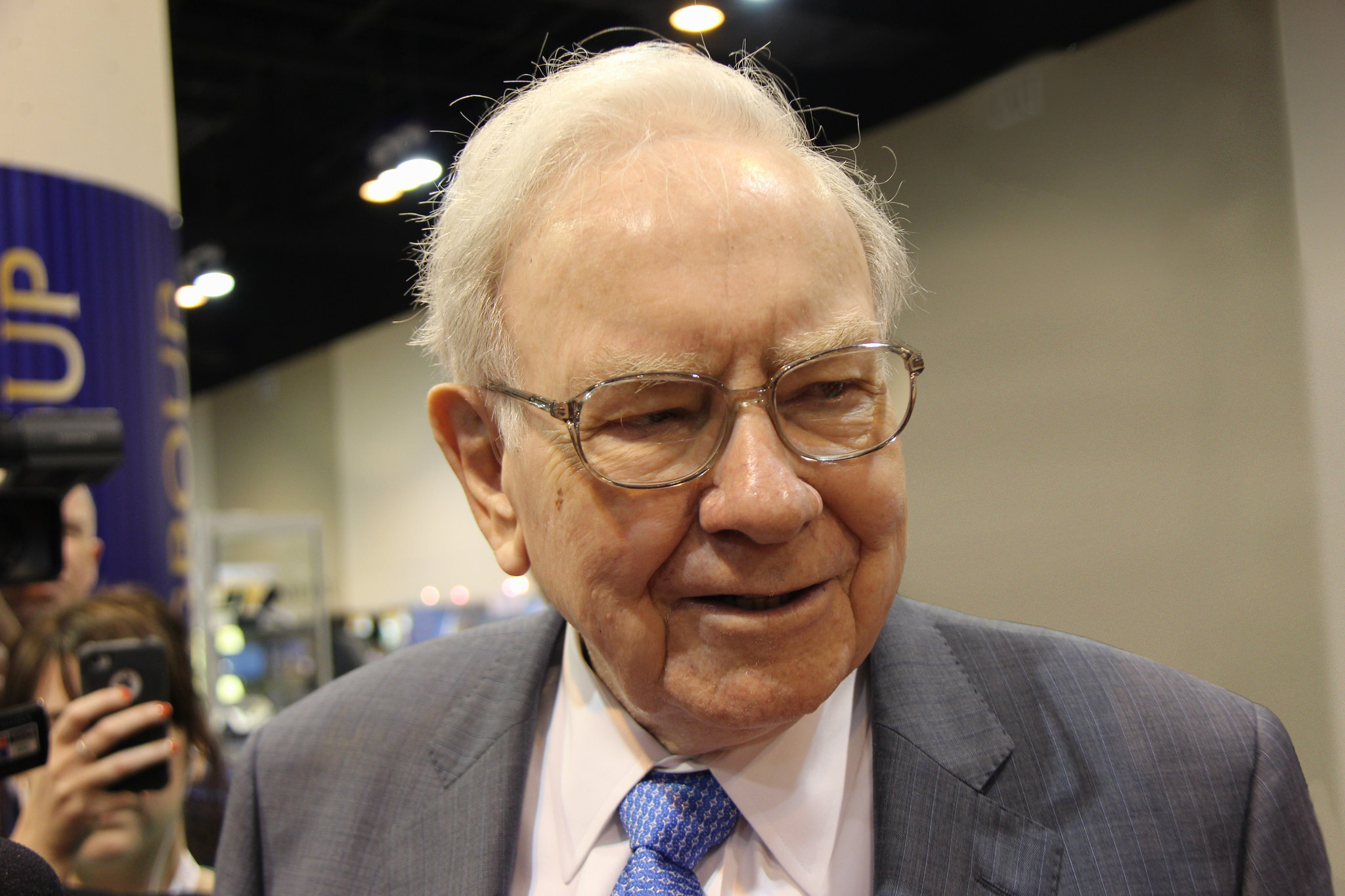Berkshire Hathaway recently filed its second-quarter 13F form, revealing its stock holdings at the end of June.
Each quarter, investors anxiously await Warren Buffett’s company Berkshire Hathaway filing its 13F filing with the Securities and Exchange Commission, divulging what stocks Berkshire held at the end of the quarter, and, therefore, what stocks the company bought and sold in any given quarter. Investors are always looking for a glimpse into the genius of Buffett and his team of investors, especially with Buffett set to step down as CEO of the company at the end of the year.
While Berkshire has been quiet in recent quarters, the large conglomerate made some notable moves in the second quarter. Berkshire recently sold some shares in two of its largest positions, while piling into an embattled healthcare stock that has struggled immensely this year.
Trimming Apple and Bank of America
In the second quarter, Berkshire continued to trim its largest position, Apple (AAPL -0.55%), and its third-largest holding, Bank of America (BAC -1.67%). In the quarter, Berkshire sold 7% of its stake in Apple and 4% of its stake in Bank of America. Over the past year, Berkshire has reduced its stake in Apple by 30% and Bank of America by 41%.
Image source: The Motley Fool.
While the bull market has raged for more than 2.5 years, Berkshire has plodded along conservatively, hoarding hundreds of billions of dollars in cash and cash equivalents, selling more stocks than it buys, and even turning away from share repurchases more recently. Given stretched valuations and the stock market’s big run, many investors simply think Buffett and his team are not seeing compelling opportunities.
There’s also talk that Berkshire is staying conservative to prepare for the big transition that will see Buffett step down as CEO but retain his role as chairman of the board of directors. Longtime Berkshire veteran Greg Abel is set to step into Buffett’s big shoes. Berkshire’s stock got off to a terrific start this year but has floundered since the transition was announced.
Apple has been dealing with tariff-related issues all year. Buffett and Berkshire may have foreseen this once President Donald Trump won the election, leading them to pare back their position. If Berkshire is concerned about the economy, perhaps paring back some of their bank holdings makes sense as well, as banks are typically cyclical.
Playing contrarian on this healthcare giant
In the second quarter, Berkshire initiated a $1.57 billion position in the nation’s largest healthcare insurer, UnitedHealth Group (UNH 12.04%). UnitedHealth’s stock has been crushed this year and is down about 46%. However, after the news came out about Berkshire buying the stock, shares increased close to 9.5% in after-hours trading.
UnitedHealth has dealt with a flurry of issues this year, including higher medical insurance costs, which is a common trend across the sector. In the second quarter, management at UnitedHealth revised its prior full-year outlook down to $16 adjusted earnings per share, significantly below Wall Street’s consensus estimates coming into the year.
The main culprit is medical costs, which management thinks will come in $6.5 billion higher than previously expected. The sector has struggled in the face of an aging population, higher utilization of and more expensive services, higher drug prices, and inflation.
Additionally, the U.S. Department of Justice (DOJ) is probing UnitedHealth in a criminal investigation over the way it charges customers in its Medicare Advantage program. The Wall Street Journal has previously reported on suspicious billing practices that allegedly increase payouts to the company. In a statement in late July, UnitedHealth said it is cooperating with the DOJ but has “full confidence in its practices and is committed to working cooperatively with the Department throughout this process.”
At their core, Buffett and his team are value investors, meaning they look for stocks with a market value below a company’s perceived intrinsic value. While UnitedHealth has struggled and is forecasting a significant earnings decline this year, management is still projecting double-digit revenue growth in 2025. Furthermore, the company’s balance sheet seems to be on solid footing. Sure, the company has high debt, but through the first six months of the year, earnings from operations of about $14.3 billion are still more than 7 times debt interest expense.
Additionally, UnitedHealth’s dividend yield is now roughly 3.25%, while the company’s trailing free-cash-flow yield is above 10%, showing the company can easily cover the dividend for the foreseeable future. In fact, UnitedHealth recently increased its quarterly dividend by 5%.
Ultimately, UnitedHealth trades at a lower-than-usual forward price-to-earnings ratio, despite expectations of much lower earnings this year, and at less than 1 times revenue. Buffett and his team value strong moats, so with UnitedHealth still controlling market share in the healthcare insurance industry, they likely see an attractive risk-reward proposition.


